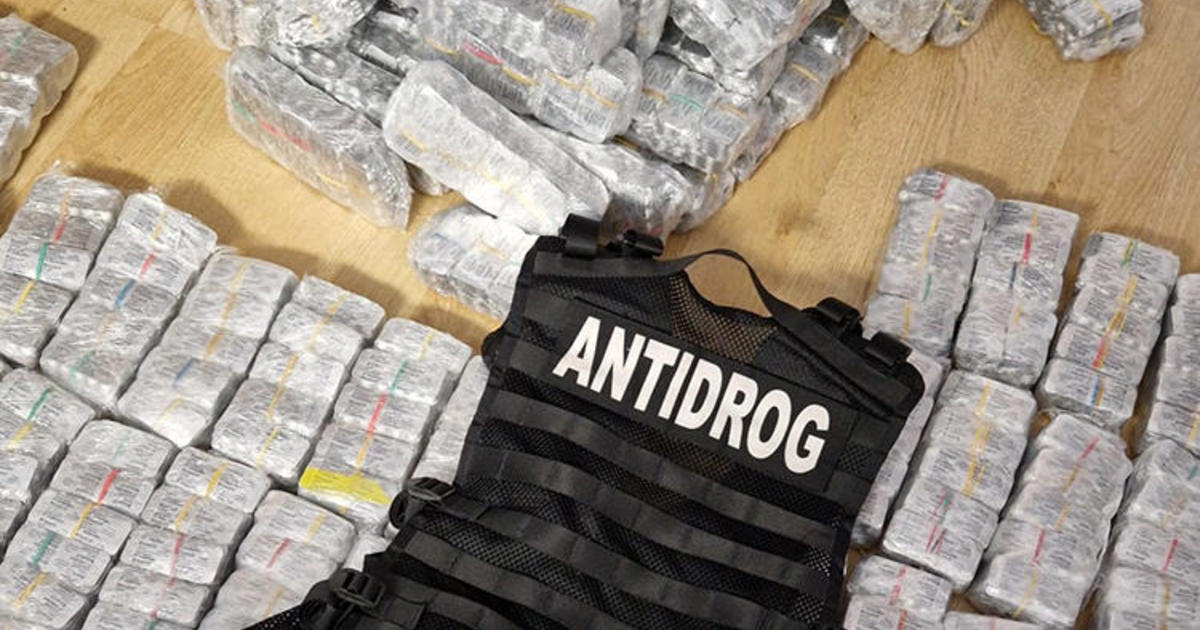Europe witnessed a significant crackdown on a large-scale prescription drug smuggling operation, resulting in the arrest of 47 suspects and the seizure of over 6 million pills with an estimated street value of $13.6 million. This coordinated effort, involving Estonian, Finnish, Romanian, and Serbian police forces under the umbrella of Eurojust and Europol, highlights the growing problem of transnational organized crime and the sophisticated methods employed by these criminal networks. The operation underscores the critical role of international cooperation in combating such widespread illegal activities that endanger public health and safety. The successful dismantling of this network serves as a testament to the power of collaborative law enforcement across borders, demonstrating how shared intelligence and coordinated actions can significantly disrupt major criminal enterprises. The scale of the operation, involving multiple countries and the seizure of substantial quantities of medication, illustrates the immense profits generated by this illicit trade and its potential to undermine public health infrastructure and increase the availability of dangerous and potentially harmful drugs on the streets of Europe.
The International Drug Smuggling Network
The Modus Operandi
The criminal group, based in Serbia, utilized a complex smuggling operation to distribute prescription drugs across Europe. They initially acquired large quantities of pills used to treat anxiety, seizures, and insomnia from other criminal networks within Serbia. These pills were then cleverly concealed within various means of transport to evade detection by authorities. The drugs were hidden inside car tires, within vehicles transported on lorries, and even concealed within clothing. This multi-layered approach demonstrates a sophisticated understanding of smuggling techniques and a determination to circumvent law enforcement. This careful planning and execution highlights the resources and organizational skills that characterize these transnational criminal groups. The complex concealment methods and multiple transportation layers showcased a clear effort to make the operation as difficult to detect as possible.
The Distribution Network
Once the pills reached Romania, they were further distributed throughout the region and onward to Estonia, Finland, and Norway. Gang members acting as local distributors then sold the pills directly on the streets, demonstrating a well-established distribution network spanning several European countries. This clearly indicates a significant level of operational control, with regional distributors handling different parts of the logistics in each target country. The success of the operation hinged on the seamless coordination between these different nodes of the distribution chain. This highlights the intricate operational capabilities of the organized crime group and the sophisticated network that allowed them to efficiently move millions of pills. This cross-border distribution underlines the significant transnational element and challenges this presents to national law enforcement efforts.
The Role of International Cooperation
Eurojust and Europol’s Contribution
The success of the operation underscores the crucial role played by international law enforcement agencies like Eurojust and Europol. These agencies facilitated coordination and collaboration between participating countries, enabling them to effectively share information and carry out simultaneous raids in Romania, Serbia, and Finland. This collaborative effort is vital in dismantling transnational criminal networks. By pooling resources, expertise, and intelligence, participating countries amplified their capabilities. The simultaneous raids demonstrate carefully synchronized action in response to detailed intelligence gathering and analysis. The coordinated approach ensured efficiency and maximized the impact of the operation, disrupting a widespread criminal enterprise that might have otherwise continued to operate effectively in multiple jurisdictions. The sharing of sensitive and strategic intelligence was clearly instrumental to achieving a high degree of success.
The Broader Context of Transnational Crime
The operation highlighted in this case is just one example of the escalating threat of transnational organized crime in Europe. A Europol report revealed that drug smuggling, specifically of cocaine, cannabis, heroin, and synthetic drugs, has become a major focus for the majority of the continent’s most dangerous gangs. The use of legitimate businesses as fronts for illegal activities, as seen with fruit companies and hotels, underscores the challenges faced in detecting and disrupting such operations. The international scope of the operation showcased how crime transcends national borders, necessitating unified and well-coordinated global response from law enforcement.
The Significance of the Seizure and Arrests
Financial Impact and Public Health
The seizure of 6 million pills represents a significant blow to the criminal organization, disrupting its supply chain and revenue streams. With an estimated street value of $13.6 million, the seized medication prevents these dangerous substances from reaching vulnerable individuals, helping to safeguard public health. The significant financial blow also directly weakens the criminal organization’s ability to operate, potentially disrupting its activities and hampering its future operations. Furthermore, the arrests themselves significantly degrade the organisation’s leadership and infrastructure.
Long-Term Implications for Law Enforcement
This operation serves as a strong deterrent against future transnational drug-smuggling operations. It demonstrates the efficacy of joint international efforts and encourages the development of strong collaborative networks across various national jurisdictions. The disruption caused is substantial, demonstrating a potent countermeasure against transnational organized criminal activity. Future operations, utilizing improved collaboration and intelligence-sharing capabilities, have increased potential for disrupting criminal enterprises significantly.
Take Away Points:
- International cooperation is critical to combating transnational organized crime.
- Sophisticated smuggling techniques require innovative law enforcement strategies.
- The scale of the operation highlights the significant financial and public health implications of drug smuggling.
- The success of this operation demonstrates the effectiveness of coordinated law enforcement efforts in disrupting large-scale criminal networks.
- Continued collaborative efforts and intelligence sharing are essential to counter the evolving methods of drug trafficking.









